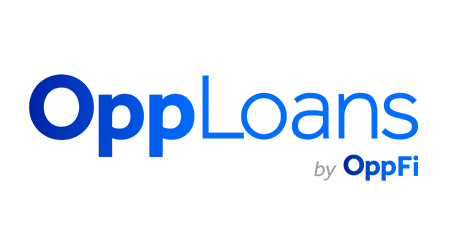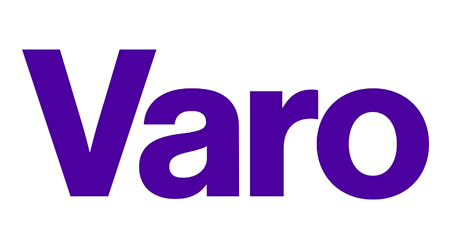
- Borrow up to $5,000
- Get cash as soon as same business day
- Easy application
- Quick approval
- Not available in: CO, CT, GA, IA, MD, MA, NY, SD, VT, WV.



Technically, payday loans aren’t specifically illegal in Connecticut, but the state’s small loan laws restrict who can offer small loans and how much interest they can charge. For example, only small loan lenders, banks, credit unions and pawnbrokers licensed with the state’s Department of Banking can offer loans up to $15,000 at more than its general usury limit of 12%.
But the rate varies depending on if the loan is open-ended, like a credit card, or close-ended, like a payday or installment loan that has a set due date. For open-ended loans, the maximum rate a licensed person or entity can charge is 19.8%. For closed-end loans, the rate structure works as follows:
In addition, Connecticut law also prohibits using wages as security for a loan. This further restricts payday loans if they’re made with the stipulation that repayment comes from your next paycheck.
In any case, you should always carefully read over your loan contract to make sure you understand the APRs and fees it’s charging, such as application or origination fees, late fees and prepayment penalties. If you believe a lender in Connecticut is violating the state’s lending laws, you can file a complaint with the state’s Department of Banking. You may also want to file a complaint with the federal government’s Consumer Financial Protection Bureau (CFPB).
Consider these loan options in Connecticut if you need cash and your credit score isn’t the best.
Borrowing money from a cash advance app can be a convenient way to access cash between paychecks without resorting to a payday loan. Advances are typically between $20 and $500, although some providers offer larger loan amounts. There are no credit checks, interest or late fees, and you could potentially receive funds within minutes.
But they’re not totally free. Some providers charge monthly membership fees, which can cost anywhere from around $5 to $10 a month, although some apps don’t require a subscription. And, if you need money fast, you’ll usually have to pay a fee for expedited transfers. Or, if you can wait, free transfers typically take two to three business days.
If you need to borrow more money or want more time to pay it back, you may want to consider a personal loan instead, which you can get from banks, credit unions or online lenders. Personal loans run from about $600 to $50,000, although a few lenders go higher. The lowest rates typically start at 5.99% and can go as high as 35.99% — which is still much lower than most short-term loans. But you may also have to pay an origination fee of up to 10% of the loan amount.
To qualify for a personal loan in Connecticut, you may need a credit score of at least 620, although some lenders accept lower scores. You’ll also need proof of income and a low debt-to-income (DTI) ratio, and most lenders require a hard credit check.
To combat predatory payday loans, some federal credit unions offer PALs with amounts up to $2,000. Rates are capped at 28%, and loans have terms from one to 12 months. And the only fee you might have to pay is a one-time processing charge of up to $20.
But you have to be a member of the credit union to qualify. For PALs I, which only go up to $1,000, you’ll need to be a member for at least 30 days to qualify. Credit unions that offer PALS II for as much as $2,000 may not have a waiting period for new members.
In some cases, your employer may be willing to give you an advance on your next paycheck. This could be an informal situation where your boss gives you cash before you get paid and deducts it from your check. Or, some companies offer loans or cash advances as an employee benefit.
We currently don't have that product, but here are others to consider:
How we picked theseThe Finder Score crunches 3+ types of short-term loans across 65+ lenders. It takes into account the product's interest rate, fees and features, as well as the type of loan eg investor, variable, fixed rate - this gives you a simple score out of 10.
To provide a Score, we compare like-for-like loans. So if you're comparing the best short-term loans for all credit types, you can see how each short-term loan stacks up against other short-term loans with the same borrower type, rate type and repayment type.
Licensed small loan lenders in Connecticut can’t charge more than $11 to $17 per $100 borrowed, depending on the loan amount. But national banks and online lenders typically charge between 5.99% and 35.99%. You may also have to pay an origination fee from 1% to 10% of the loan amount.
Ultimately, the actual cost of the loan depends on the lender, the loan type and your credit history. Higher rates and longer loan terms mean you’ll pay more in interest over time. To save money, search for lenders with the lowest rates and choose the shortest loan term you can afford. If you have poor credit, adding a cosigner to your loan application can help you qualify for a lower rate.
Connecticut has a number of financial assistance programs If you’re struggling with your finances or facing a temporary hardship.
You can explore more resources by visiting the Connecticut Department of Social Services.
While you can’t get a payday loan in Connecticut, that might just be a blessing in disguise — you may have better options. Consider cash advance apps with no interest, personal loans, PALs or advances from employers. You may also want to check out other short-term loan options and payday loan alternatives to learn more about resources to get out of long-term debt.
Your best option generally depends on how much money you need and when you need it. If it’s an emergency and you only need a small amount, a cash advance app may do the trick. If you need more — and can’t pay it back within a couple of weeks — you may want to consider an online personal loan, which typically offers fast funding at reasonable rates and terms.
You may need to ask friends or family to help if you don’t qualify for a loan. You may also want to sell some of your belongings, pick up some extra hours at work or get a side hustle.
A review of Honest Loans, a lead generation service that can connect you with loan amounts from $200 to $50,000.
Compare lenders that offer $800 loans, including payday and installment loans, personal loans and cash advance apps.
Lenders that offer $700 loans, how much they cost, requirements needed to qualify and what to watch for.
How to get a $600 loan, including eligibility requirements and where to find them.
From pay advance apps to payday loans, you have a few options to choose from.
Compare eight lenders that offer loans under $300.
Find out where to apply for a short-term loan if you have bad credit — and learn what red flags to stay away from.
Here’s how to get a small $500 loan for cash until payday.
Borrowing a $100 can be a quick and painless process. This article covers exactly what you need to know when you need a little cash between paydays.
Five lenders that offer debit card loans and fast funding.